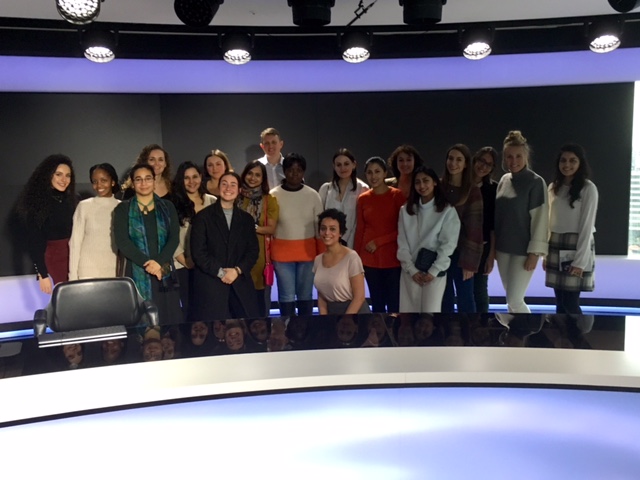 Shanghai is a spectacular world city that demonstrates its enterprise and dynamism on every street. But how rich is China in the kind of creativity that will keep it at the digital cutting edge?
Shanghai is a spectacular world city that demonstrates its enterprise and dynamism on every street. But how rich is China in the kind of creativity that will keep it at the digital cutting edge?
My trip here has revealed different types of poverty that lurk just behind the towering modernity. For example some of these super clever students at the elite University of Fudan still have dorms without hot water or heating. Electric fires are banned, too.
Likewise, the media industry here appears to be booming but scratch under the surface and you realise that even the political authorities fear that there are too many obstacles to innovation. This is both a source of concern and hope.
Let me explain. I have spoken with a lot of young media types here, and some very well informed media researchers. The picture they paint is of fundamental growth, but some uncertainty about its long-term sustainability.
It’s a bit like the huge statue of Mao Tse-Tung in the leafy grounds of Fudan University. Chinese intellectuals have rejected that brand of Marxism. So it’s a bit of a surprise when you turn a corner and there is that vast presence from the past. But at the same time, there is a continuing acceptance of and accomodation with the Party’s control of China’s market economy.

It’s not surprising when you look at the material benefits that this compromise brings. The cars that throng the streets and the sparkling new University buildings – including the 5 star hotel I am staying in – speak of the benefits of ‘harmony’.
So the journalism school students and staff talk about how they are being paid for by the state to create journalists who will go out to serve the state. They describe it as accepting 10% censorship in return for doing the rest of their jobs.
But can this work with new media? Well, the answer I am getting is that it doesn’t and that the state itself recognises that.

In the West we have heard a lot about how dissident Chinese bloggers and Twitterers have tried to use New Media platforms to critique the central and local governments. We also know about the Great Firewall of China and the 50,000 ‘half dollar’ state bloggers who are paid to post positive messages about the Party online, for example. But social media may have an impact in a more subtle and fundamental way on media freedom.
The government has just relaxed capital investment rules for media in an attempt to boost the independent sector. At present any media organisation backed by the state ends up being limited by geography. The enterprise never bothers to expand beyond the geographical territory of its controlling political body. You have to be registered to be allowed to sell advertising, so you end up tied to the local council. It’s called the ‘farmer model’ because you just plough your existing fields. This is obviously not a good thing with an Internet enterprise.
Independent media has suffered until now from a capital bottleneck. The evidence is that is thrives when it does get the investment because unlike the state-supported media, it goes beyond the territory.
Take Ten Cent QQ which is China’s most popular instant messaging service and the third busiest in the world. It has 500 million registered people and 20 million daily users. It’s worth 1.5 billion Chinese Yuan and is listed on NASDAC because it can’t get enough funding domestically.

This is the kind of enterprise that needs to be unleashed to boost China’s creative industries and to provide the kind of state of the art communications that will power any major 21st century economy.
But despite reforms and some much more enlightened attitudes in the education sector n places like Fudan, there are still obstacles in terms of bureaucracy, over-regulation, corruption and cultural conservatism. I think that social media enterprise will be a key factor in removing those obstacles. In its wake it will improve general freedoms in China.
More on Chinese social media in another post as I seek to unpack the lessons of this fascinating trip.
These are all opening thoughts in what I hope will be a continuing Polis engagement with China. The LSE Media and Communications Department has a joint Global Communications Degree with Fudan University and Polis is planning an event on social media in China in 2010. Get in touch with us if you are interested in either via polis@lse.ac.uk



